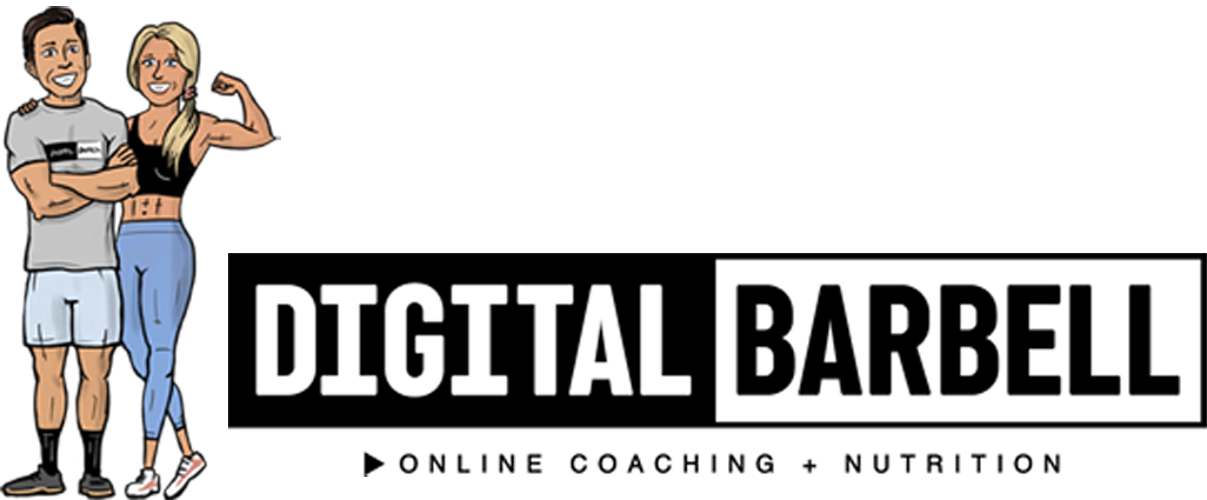Do All Calories Count The Same?
Do All Calories Count The Same When You’re Trying To Lose Weight?
If you eat 1,000 calories of pizza, will you lose the same amount of weight as you would if you ate 1,000 calories of kale?
And if you do lose the same number of pounds, would the type of food you ate change the way you look?
The real question is: Do all calories count the same when you're trying to lose weight and improve your body composition?
Let's dive into the truth about calories, metabolism, and how the type of food you eat impacts not just your weight, but your energy, performance, and overall results.
By the way… I’m Jonathan. My wife Blakley and I own Digital Barbell. For over a decade, we’ve been helping hard-working people get strong, fit, and look like they work out without getting bored, hurt, or wondering what to do. Our clients are all over the world, and we coach them all online. Check out our Podcast on Apple, Spotify, or YouTube.
What Is a Calorie?
A calorie is simply a unit of energy. Your body needs calories to function: to keep your heart beating, your lungs breathing, and, yes, your biceps curling.
If you’ve ever watched the T.V. Series “Alone” you know what happens to the human body without the calories in food.
Whether you're eating 1,000 calories of chicken breast or 1,000 calories of cupcakes, your body recognizes them as energy.
But even though that’s true… Not all calories are created equal when it comes to how your body uses them and how they affect the way you look.
Understanding Energy Balance
To lose fat, gain muscle, or maintain your weight, you need to understand energy balance. It's simple math:
Calories In = Calories Out: You maintain your weight.
Calories In > Calories Out: You gain weight.
Calories In < Calories Out: You lose weight.
But here’s where it gets interesting: The type of calories you eat can affect your energy balance, even if the math stays the same.
Why Macronutrients Matter
There are three macronutrients that all calories belong to:
Protein (4 calories per gram)
Carbohydrates (4 calories per gram)
Fat (9 calories per gram)
Why Protein Is King
Protein helps build muscle and keeps you full. That’s especially helpful if you’re trying to lose weight.
It has a higher thermic effect, meaning your body burns more calories digesting protein than carbs or fat.
For Example: 100 calories of chicken breast might only have a net effect of 75 calories after your body has worked to digest it, where as 100 calories of soda will “count” for all 100.
Carbs often get the blame for weight gain, but after helping over 1,000 people get in shape, I can tell you that carbs aren’t the smoking gun.
Since fat has over twice as many calories per gram, it’s easy to see why a high-fat diet can lead to weight gain, and make weight loss hard.
The problem is foods like chips, pastries, candy, and pizza, which are high in both carbs and fat.
I know, it’s not fair!
If you’re curious how many calories, and how much of each macronutrient we recommend for you and your goals, snag our free calculator below.
How Calories and Macros Affect Your Body Composition
While total calorie intake determines whether you gain, lose, or maintain weight, how you distribute those calories among protein, carbs, and fat determines what that weight looks like on your body. That’s called your “body composition”.
Not enough protein? You’re likely to lose muscle along with fat, and end up looking “skinny fat”.
Too many processed carbs and fats? You’ll likely gain more fat than muscle, and end up needing to go through a fat loss phase.
Think of it like this:
Total calories are the gas pedal controlling how much weight you lose.
Macronutrient breakdown is the steering wheel controlling how you look.
Here’s an example of me at two different points in my life at the same body weight, but with different body compositions:
The Processed Food Problem
Imagine two meals:
Meal One: 500 calories of grilled chicken, rice, and roasted veggies.
Meal Two: 500 calories of chips, soda, and a candy bar.
Same calories, totally different results.
Highly processed foods are engineered to be hyper-palatable—high in sugar, salt, and fat—which makes them easy to overeat and almost impossible to put down. On the other hand, less processed foods like lean proteins, whole grains, and vegetables are nutrient-dense. They keep you fuller longer, stabilize energy levels, and help your body build muscle instead of storing fat.
Both are about 400 calories:
Client Success Story:
When one of our clients hired us, she was eating the “right number” of calories but wasn’t seeing results. Within a week we were able to see what was holding her back. Even though her diet was relatively “healthy”, and she was hitting her calorie goal, her diet included a lot of highly processed meals and snacks.
Over the next few weeks, we swapped those meals and snacks for nutrient-dense, higher-protein options like yogurt, cottage cheese, and whey protein. In short order:
Her energy levels improved.
Her workouts got better.
She started losing weight again.
Same calories, different results.
47 Year Old Digital Barbell Client
3 Practical Takeaways
If you want to lose fat, build muscle, and feel great, here’s what you need to focus on:
Prioritize Protein: Protein keeps you full, helps you recover, and boosts your metabolism.
Limit Processed Foods: These should be "sometimes" foods, not your daily staples.
Plan Ahead: Keep healthy, nutrient-dense options on hand to avoid reaching for processed junk when hunger strikes.
Remember: You don’t have to be perfect to see results. The goal is to make better choices most of the time.\
If you’re ready to get better results, click —>HERE<— to learn your options to work with us!
Have a great day!
Jonathan






